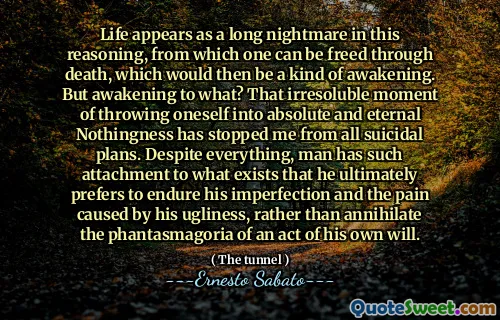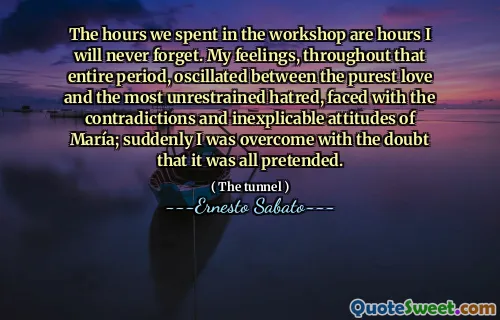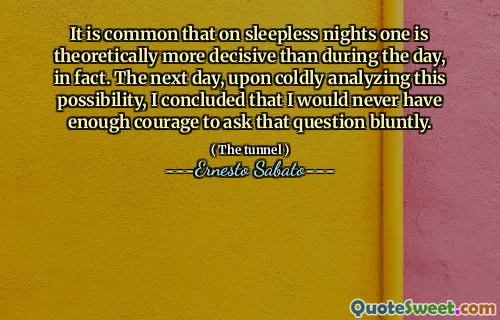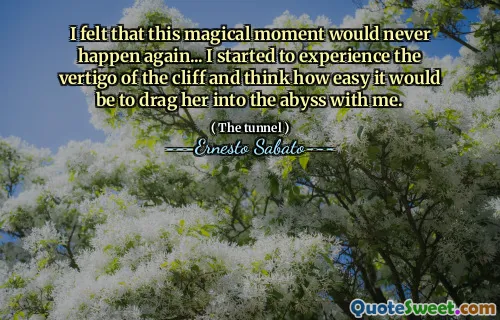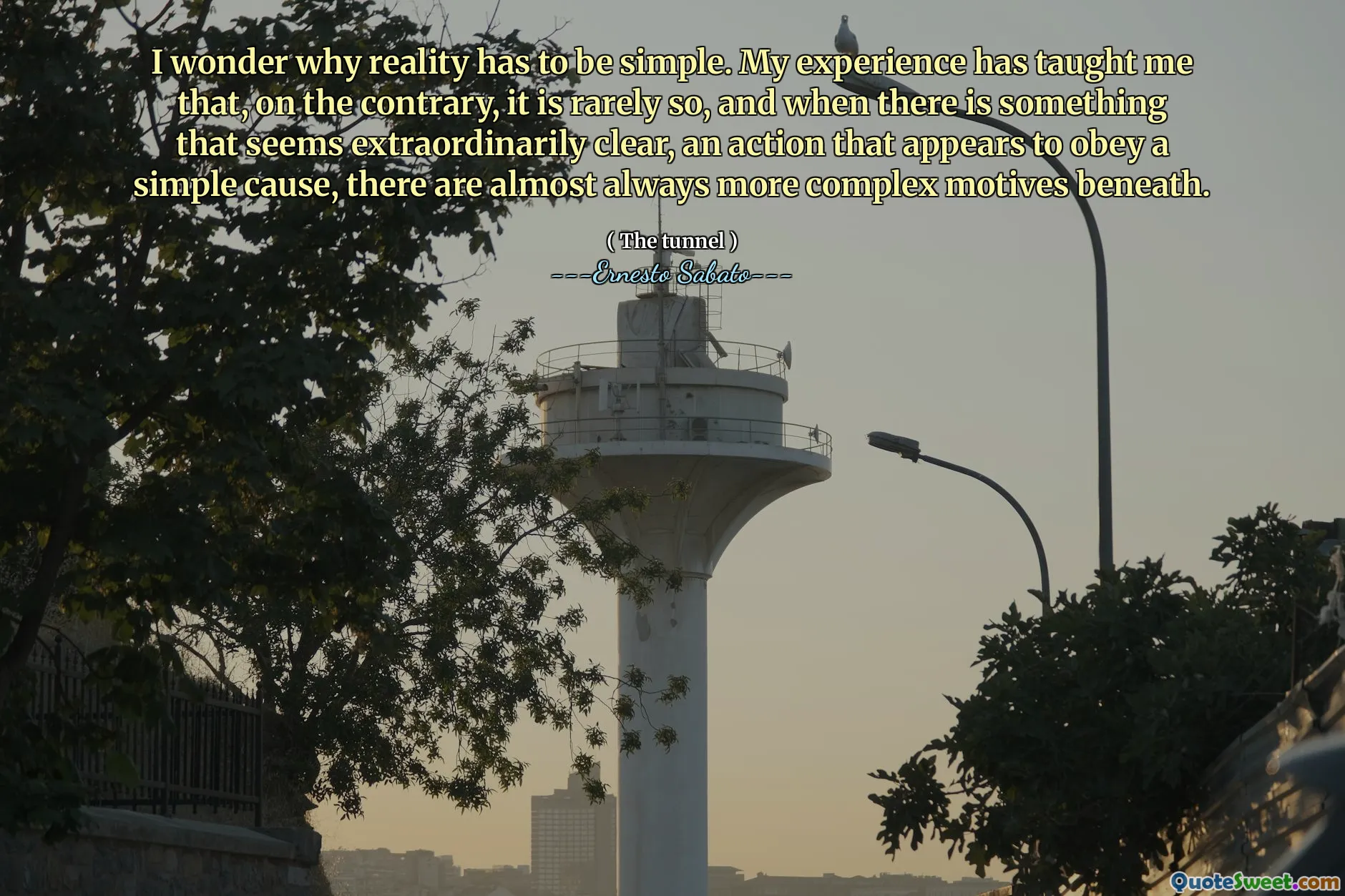
I wonder why reality has to be simple. My experience has taught me that, on the contrary, it is rarely so, and when there is something that seems extraordinarily clear, an action that appears to obey a simple cause, there are almost always more complex motives beneath.
This quote prompts a profound reflection on the nature of reality and perception. It challenges the assumption that events, motives, or situations are usually straightforward and easily understood. Instead, it suggests that reality often conceals layers of complexity beneath what initially appears simple or transparent. Such an insight encourages us to adopt a more skeptical and analytical mindset when evaluating circumstances or actions. We tend to favor simplicity because it provides comfort, clarity, and a sense of control—especially in a world overflowing with information and ambiguity. However, this simplicity can be illusory.
In everyday life, many situations seem clear-cut at first glance. For example, when someone acts in a certain way, we might assume a straightforward cause—perhaps frustration or logistical challenges. Yet, beneath these overt reasons, there could be a host of hidden motives—personal struggles, cultural influences, or subconscious drives—that influence behavior. Recognizing this complexity enhances our understanding of human nature and social interactions.
This perspective also holds significance in fields like psychology, politics, and history, where surface-level appearances often mask deeper, more troubling realities. It urges critical thinking and patience in uncovering the truth. Accepting the intricate layers behind simple appearances can lead to more compassionate, informed, and nuanced judgments. It reminds us that reality is seldom binary or simplistic and that embracing its complexity can foster empathy and better decision-making.
In literature and philosophy, such as in Ernesto Sabato's work, this acknowledgment of layered realities invites us to look beyond the surface and question our perceptions, ultimately enriching our comprehension of the human condition.
